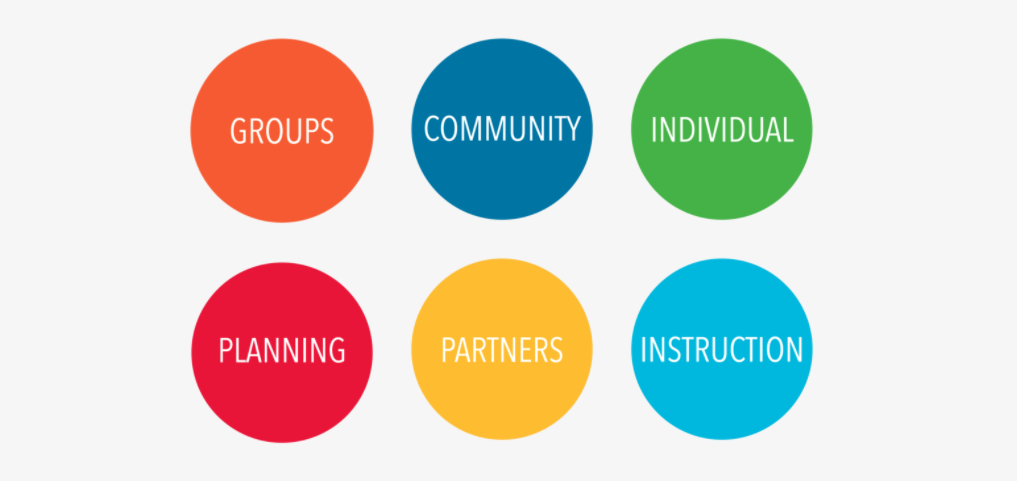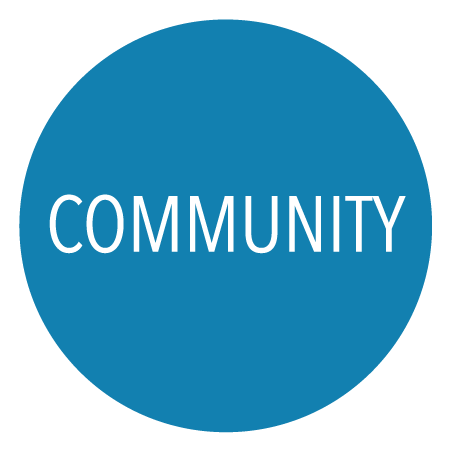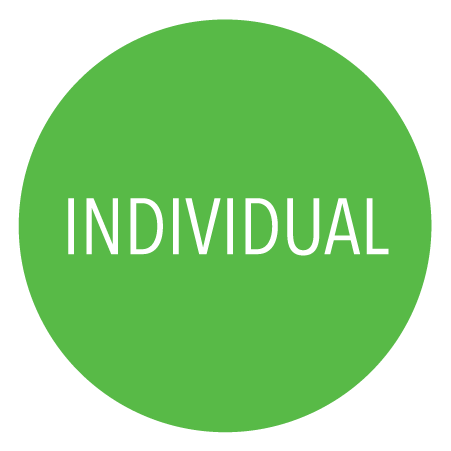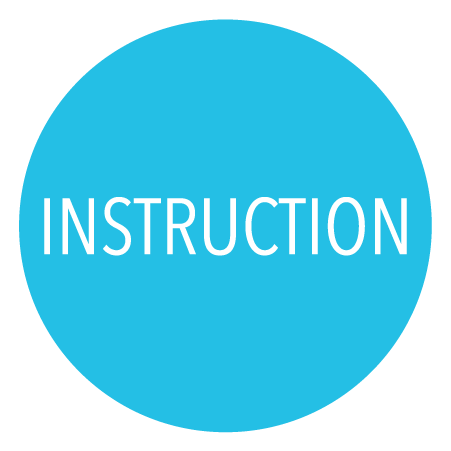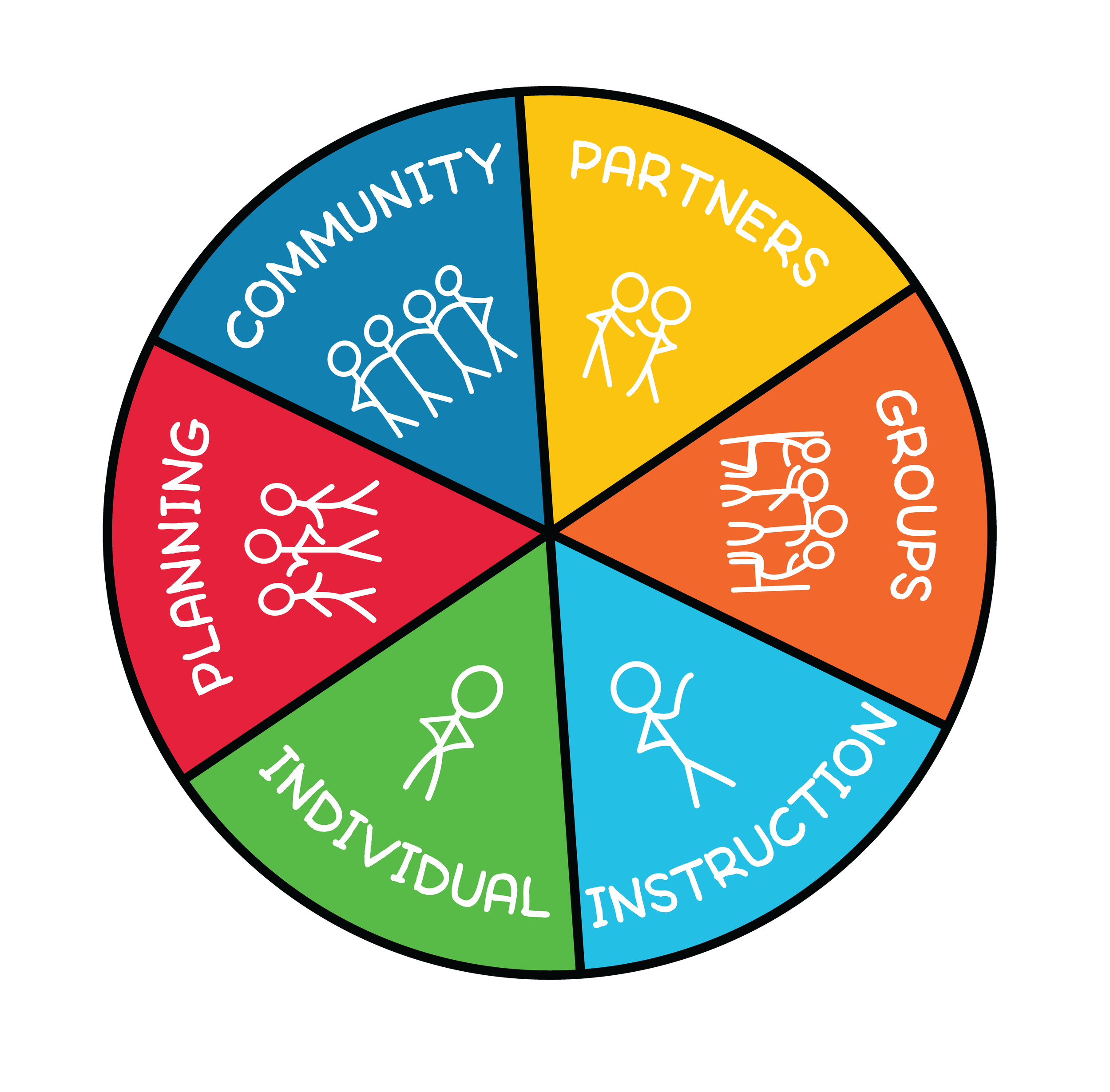tools for educators
Corey Lott’s Presentations to explore
Learning Teams: Engage and connect students
Skits! Skits! Skits! Engage and connect students and bring some fun into zoom.
Wired to be social: Choice-based learning teams
First transitions to at-home learning in April 2020
Beginning at-home learning in April 2020
Building student-centered learning communities
UDL Introduction and Pre-assessments
Empowering Learners
Intentional planning of varied social groupings puts students at the center of learning. This design process answers the who with and how to of learning. It creates a natural framework for active learning strategies that directly benefit all students' learning.
learning dynamics
What percentage of the time do learners engage in each of these dynamics?
Intentional Relationships
Learners do not necessarily know how to learn successfully alone or with others. Intentional relationships allow for identifying best practices, goal setting, and reflections to improve essential intrapersonal and interpersonal relationship skills.
Equitable Learning Communities
“Equity is an approach to ensuring equally high outcomes for all by removing the predictability of success or failure that currently correlates with any racial, social, economic, or cultural factor.”
Incorporate community cultural wealth.
Identify barriers and disrupt them.
Distribute direct engagement with the content to all students.
Share the airwaves. All students have a right to speak and be heard.
Cultivate identity, belonging, and mutual respect.
CASEL Core Social Competencies
The Collaboration for Academic, Social, and Emotional Learning (CASEL) is dedicated to increasing social and emotional well-being in classrooms, schools, families, and communities. Their comprehensive framework includes transformational SEL. Below are the five core social competencies CASEL has identified through practice and research over the past three decades. These competencies can serve all people in their quest for better lives.
-
CASEL definition: The abilities to understand one’s own emotions, thoughts, and values and how they influence behavior across contexts. This includes capacities to recognize one’s strengths and limitations with a well-grounded sense of confidence and purpose.
-
CASEL definition: The ability to effectively manage one’s emotions, thoughts, and behaviors in different situations and achieve goals and aspirations. This includes the capacity to delay gratification, manage stress, and feel motivated and agency to accomplish personal and collective goals.
-
CASEL definition: The abilities to understand the perspectives of and empathize with others, including those from diverse backgrounds, cultures, and contexts. This includes the capacities to feel compassion for others, understand broader historical and social norms for behavior in different settings, and recognize family, school, and community resources and supports.
-
CASEL definition: The abilities to establish and maintain healthy and supportive relationships and to effectively navigate settings with diverse individuals and groups. This includes the capacities to communicate clearly, listen actively, cooperate, work collaboratively to problem solve and negotiate conflict constructively, navigate settings with differing social and cultural demands and opportunities, provide leadership, and seek or offer help when needed.
-
CASEL definition: The abilities to make caring and constructive choices about personal behavior and social interactions across diverse situations. This includes the capacities to consider ethical standards and safety concerns, and to evaluate the benefits and consequences of various actions for personal, social, and collective well-being.
Universal Design for Learning (UDL)
The CAST organization presents comprehensive guidelines for cultivating three networks of learning: Affective (Why), Recognition (What), and Strategic (How). The guidelines provide ideas in each network for multiple means of engagement, multiple means of representation, and multiple means of action and expression. An overarching goal of UDL is to remove barriers for all learners through these guidelines.
CASEL core competencies and UDL integrated
Knowledge Building Principles
Knowledge Building (Scardamalia & Bereiter) offers the core idea that knowledge is created together and knowledge should be shared for the benefit of all in a learning community. The twelve principles associated with Knowledge Building offer a comprehensive road map for any educator wanting to create capable communities of learners.
